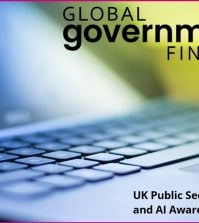UK Cabinet Office seeks feedback on data sharing legislation to develop digital ID

The UK Cabinet Office has launched a public consultation on data sharing powers between departments that could aid government’s plan to make citizens’ online user verification easier using digital identity.
The Government Digital Service (GDS) – part of the Cabinet Office – is currently working with departments to develop and implement the government’s One Login platform, which aims to enable citizens to access all public services using a single reusable digital ID. The platform succeeds the GOV.UK Verify system launched by GDS in 2011, which was wound down after repeated problems with the registration process, lower than anticipated user numbers, and the decision of key departments to develop their own ID verification systems rather than use Verify.
Tested on target users in August last year, the three-year £400m (US$488m) One Login project is designed to replace more than 190 existing sign-in options and 44 separate accounts.
The government has proposed an amendment to the UK’s 2017 Digital Economy Act in a bid to ensure safe data sharing between public authorities for identity verification purposes.
The consultation, which is set to close on 1 March, will take in views about how data sharing should work under the proposed legislation and whether the measures outlined by government would be effective.
The consultation document outlined the key benefits of proposed data sharing powers, including:
- Easier and more consistent ways to “access and sign in to government services, reducing fragmentation and costs, and replacing clerical methods using documentary evidence”;
- Better user experience for citizens accessing government services;
- Greater inclusion of citizens who do not own “conventional identity documents, such as a passport”;
- Simpler, faster access to the specific in-demand services, and;
- Fewer cases of identity fraud and misuse.
Register now: Global Government Innovation 2023
Alex Burghart, parliamentary secretary for the Cabinet Office, wrote in the foreword to the consultation document that inclusion of underserved citizens was central to the exercise.
“The proposed data-sharing legislation will ensure that more people than ever before will be able to prove their identity online and access government services, so that anybody who wants to use online services is able to,” he said.
Burghart added that the government was committed to extracting the benefits of digital ID technologies without resorting to the use of ID cards.
Amending the Digital Economy Act
The people and authorities who would be allowed to share data for ID verification purposes include those listed in Schedule 4 of the Digital Economy Act, such as London borough councils, chief police officers and various secretaries of state. Amending the Act would add four more bodies to the list – the Cabinet Office, the Department for Transport, the Department for Food, Environment and Rural Affairs, and the Disclosure and Barring Service.
The consultation document said that identity verification services currently rely on “a variety of different data sharing powers” and that the draft regulations would provide “a single piece of legislation to improve access to services by citizens”.
Read more: Aiding digital transformation in government through finance reform
Alongside the consultation, the government also published a summary of its impact assessment of the draft data sharing legislation. In its summary, it said that it had “identified a number of positive impacts [of the legislation] on the basis of disability, age and gender reassignment specifically”.
“We have further identified positive impacts on individuals from low socio-economic groups and individuals without access to a passport and/or driving licence,” it added.
The summary emphasised that groups of people that had been underserved by the Verify system, including young people and citizens with disabilities, would be able to draw on “a wide range of data sources to successfully prove their identity” using One Login.
HM Revenue & Customs (HMRC) confirmed in November last year that it would start transferring its services from Government Gateway – an IT system developed to register people for online government services and used primarily by people filing tax returns – to the One Login platform in summer 2023. However, this would depend on whether the new system could provide “an equivalent or better standard than the existing services”, according to HMRC chief technology and design officer Tom Skalycz.
The One Login project is one of six cross-government missions enshrined in the government’s digital transformation strategy, which was unveiled last year.
Read more: UK government outlines skills challenges in digital transformation plan






















Utter rubbish, this money could be spent elsewhere, somewhere where it is actually needed.
In the UK hundreds of thousands of people do not own a computer and consequently choose not to Log in to the Internet. How will there needs be met in the future? Removing 190 sign in options and 44 separate accounts by One Login will clearly facilitate fraud. The 400m GBP could be better spent. Remember the Post Office soft ware scandal?
What is proposed is more than just an improved login. If you look at the consultation, the amount of data held against an individual will constitute a gross invasion of their privacy and will pave the way for CBDC and give the government as much control as the CCP has over its people.